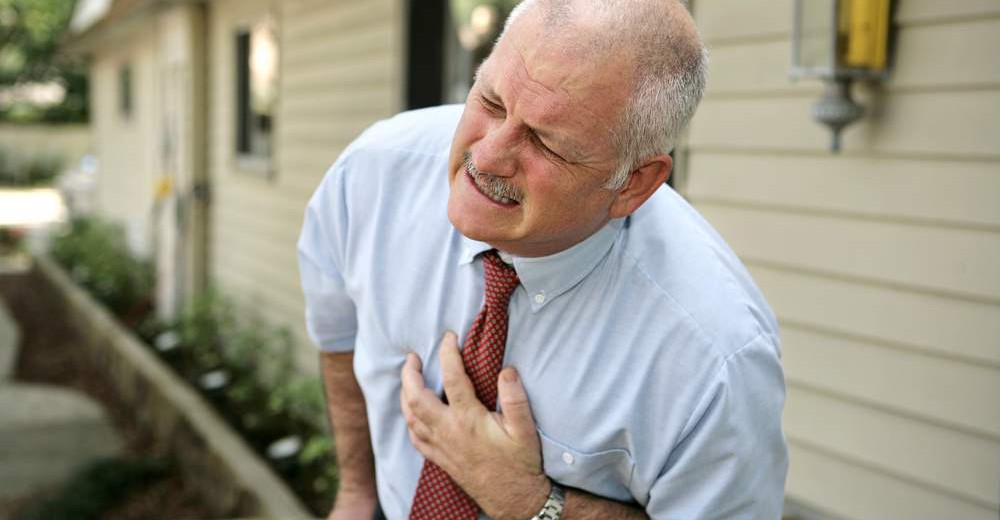
Heart attacks are becoming more common especially after the development in scientific research. What people perceived as common chest pains, are now more distinctly categorized as types of heart attacks. Myocardial Infarction commonly known as heart attack is an episode that occurs due the stoppage of blood flow into a part of the heart. It can cause considerable damage to the heart muscle.
Each year, a considerable number of people fall victim to heart attacks despite the technological advancements in the field of medicine. However, it is found that the number of deaths due to heart attacks have reduced after recent advancements in medical science. People are now much more careful with their health regarding heart attacks and have become more conscious of conditions that possibly lead to heart attacks.
Is Death the Ultimate Result?
There are different degrees according to the severity of these attacks and not all heart attacks lead to death. However, no such episode is less painful and patients having gone through one such attack are more at risk of experiencing another. The risk however, can be minimized if proper precautionary measures are taken in advance.
Types of Heart Attacks
Based on the severity of attacks, heart attacks are classified as following:
- Coronary Artery Spasmis a type of heart attack where the walls of blood arteries tighten to such an extent that it ceases blood supply to the heart. It is not easily discoverable. However, calcium channel blockers and nitrates can help treat the heart disorder
- NSTEMI Heart Attacks result due to temporary and partial blockage of a coronary artery. It can be treated through angioplasty.
- STEMI Heart Attacks can result due to complete blockage of a coronary artery which results in a malfunctioning of a major part of heart muscle. It is a serious type of heart attack and therefore emergency treatments involve drugs such as ‘thrombolytics’.
- Demand Ischemia is a unique type of heart attack where a patient experiences shortage of oxygen in the blood. It often results due to infections and fast heart rates.
Are there any signs?
There are some common and obvious signs of a heart attack. These signs may seem minor and are therefore often ignored by people. This is also one big reason of the commonness of heart attacks in the world today. This article is intended to help common people and the medical field personnel to understand the basic symptoms and potential signs of a heart attack.
Before discussing these signs, there are some questions that you should ask yourself:
- Do I smoke? Around 20% to 22% of coronary artery diseases are caused due to smoking. It includes tobacco smoking and secondhand smoke i.e. too much exposure to air pollution.
- Did my ancestors have any history with heart attacks? If the answer is ‘Yes’, then you are more at risk of having one for yourself. Around 25 genetic variants are discovered to have been associated with heart attacks.
- Is my general health fine? Heart attacks can also result as a consequence of other health issues such as diabetes, blood pressure problems, obesity, cholesterol and others.
- Am I a man? In case you are, you face a higher risk as compared to women. The fact is not as concerning as it may sound but as a person ages, the chances of experiencing a heart attack also increase.
Some of these risk factors can be controlled while others are non-negotiable. In any case, precautionary measures can help reduce these risks.
Signs of a Heart Attack
As discussed before, there are some obvious and common signs that indicate to any possibility of heart attacks. Some of these major signs are mentioned below with brief and relevant details.
Heart Burn and Digestive Issues
Heart burn is a digestive disorder that results due to the opening of esophageal sphincter. During a heart burn episode, a person experiences sever pain in the chest. It normally happens to people who lie down immediately after having a meal. It can also cause stomach pains and vomits. People who experience frequent heart burn episodes are at risk of experiencing a heart attack.
On some occasions, heart attacks are also mistaken for another such chest pain episodes and therefore, it is recommended that patients should consult medical experts once they are faced with such problems.
Pain in the Left side of the Body
It is one of the classic signs of a heart attack. A person may experience pain in the left side of the body. It generally rises in the left arm but on many occasions, it can run down the entire body. Normally, it is mistaken for a regular muscle pain and thereby ignored but it is one of the most common symptoms of a heart attack. Therefore, in case a person suffers pain in the left side of the body only especially the arm, there is a probability that a heart attack is around the corner. The best way to avoid any severe consequences is to get immediate treatment and medical consultancy.
Quick Exhaustion
This is also a major symptom of a heart attack. In case you get tired too soon, you may be at risk of a heart attack. Try analyzing as to how quickly you get tired while doing some of the daily life activities like walking, climbing stairs, jogging and others, etc. Complete analysis of your daily life fatigue and exhaustion period can help you identify how much risk you face. Consult your medical advisors and doctors about your fatigue. It can reduce down any possible chances of a heart attack and thereby improve your health conditions as well.
Unstoppable Coughing
This is a symptom which is more common in those who already suffer from heart problems. They need to pay special attention and consult medical experts for it. Generally patients are faced with episodes where they do not cease coughing. In severe cases, blood coughs are also witnessed. General signs of cough related heart attack symptoms are pinkish white mucus which results due to blood leakage in the lungs. Medications that help with ceasing coughs can help a great deal in overcoming this possible heart attack symptom.
Unusual Sweating
Sweating is pretty normal until it results due to some exercise or hot weather conditions. Some people generally loose much of their body’s liquid in the form of sweat. However, if a person experiences cold sweating for no apparent reasons, it is an alarming situation and immediate actions should be taken. Emergency checkup is most recommended to avoid any severe consequences.
Jaw Pain and Throat Pain
People suffering from sinus are commonly faced with jaw pain. Often it is related to any muscular problems. However, throat pain that initiates from the chest center and creeps up to the throat and then the jaw is one of the obvious signs of a heart attack possibility. Like other symptoms’ treatment, emergency medication and immediate consultation is inevitable for the patients. It can save from any further and much severer damages.
Dizziness
Feeling dizzy can be pretty normal especially after having taken a considerable amount of alcohol but if it happens for no apparent reason, it is the time you consult your medical advisor immediately. Often this dizziness is accompanied by chest pains and gasping for breath. All these signs are alarming enough for a patient to consult a doctor as soon as possible.
Swollen Hind Limbs
In case a person feels that the lower limbs are swelling abnormally, it is one of the more obvious indications of a heart attack. It happens as the heart cannot cope up with the demand of blood to the lower body. It also affects the kidneys as well as the urinary bladder. It arises due to a medical phenomenon referred to as ‘Bloating’. The swelling can also cause disturbance while walking and people are generally restricted to bed. Medical advisors should be consulted immediately to avoid any sever consequences.
Rapid Heart Beat
A stable heart beat is a sign of healthy heart. In case the heart rate disturbs too much or there is a big difference in average and recorded heartbeat, it is a possible sign of a heart attack. Many heart attack cases are reported to have had a cause that was directly or indirectly related to the inconsistency of the patient’s heartbeat. Therefore, heartbeat should be checked on regular basis and any abnormality should be reported to the doctor immediately to keep from a possible heart attack.
Snoring
One can never predict as to how loud or softly he or she snores while sleeping. Loud snoring is also a sign of heart attacks. An external observer can be asked to keep a check on the level of snoring especially for those who suffer from heart problems.
Conclusion
Heart attacks are a common problem in the world today. Most people in the world who suffer from heart attacks are unaware of the possible signs and symptoms of heart attacks and therefore, it should be strictly considered that a patient is kept under observation for all the above mentioned symptoms.
Article published in https://commhealthcare.com/signs-of-heart-attack/

